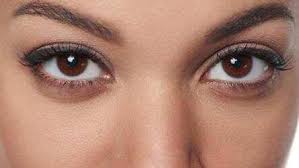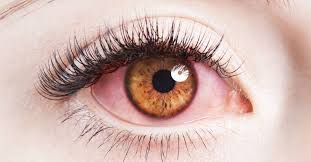Can you reverse eye damage?
There are countless conditions and diseases that can target the eyes and affect your ability to see. Once damaged, can your eyes be healed once more? There are many common conditions such as glaucoma, macular degeneration, nearsightedness, farsightedness and more that our patients struggle with. Some conditions that involve eye damage or vision damage can be reversed while others can’t. That’s why it’s so important to see an eye doctor often to monitor the health of your eyes and your vision. We can detect problems before they become severe and make you blind. Find out what some of the common eye conditions are that cause vision loss and if your condition can be reversed.
The Retina And Eye Damage
There are many parts of the eye that contribute to your vision. One of the most important parts is the retina. When you look around at your environment, light enters your eyes through your cornea and lens. The lens focuses rays of light onto your retina, which is the light-sensitive nerve tissue that contains photosensitive cells called rods and cones. These cells convert light into electrical signals that tell your brain (via the optic nerve) what you are seeing. If the retina is damaged, then eye damage and even blindness occur.
Nearsightedness, Farsightedness, And Astigmatism
Nearsightedness is also known as Myopia and is a refractive error in the eyes where objects up close appear clearly, while objects far away are blurry. Farsightedness (also known as presbyopia) is the exact opposite. Objects farther away appear clear while objects up close are blurry. About 40% of Americans are nearsighted, and many Americans have some form of farsightedness.
Astigmatism is another common refractive error of the eyes. It is the optical term for more than one point of focus. Instead of being spherical, the cornea is shaped more like a rugby ball, causing the eyes to try to focus on several different points at once. Luckily, nearsightedness, farsightedness, and astigmatism can all be treated and corrected with eyeglasses, contact lenses, and LASIK or refractive surgery.
Macular Degeneration
This is the leading cause of vision loss currently. The retina’s central area (called the “macula”) is what focuses central vision in the eye. Macular degeneration and age-related macular degeneration are conditions where you lose your central vision. Around 2.1 Million Americans over 50 have age-related macular degeneration. Even more people (9.1 million of them) have early macular degeneration. You can get macular degeneration due to genetics or can develop it over time with too much exposure to blue light. If it is the latter, make sure you wear computer glasses when using devices such as laptops, cell phones, tablets, and other electronics that use blue light. LED and fluorescent lighting also give off a lot of blue light, which can damage your retina.

What is the ideal dietary regimen for someone concerned about preserving or improving eye health?
Lists the Top Ten Foods for Sight:
- Cold water fish (sardines, cod, mackerel, tuna) are an excellent source of DHA, which provides structural support to cell membranes and is recommended for dry eyes, macular degeneration, and sight preservation.
- Spinach, kale, and green leafy vegetables are rich in carotenoids, especially lutein and zeaxanthin. Lutein protects the macula from sun damage and from blue light.
- Eggs are rich in cysteine, sulfur, lecithin, amino acids, and lutein. Sulfur-containing compounds protect the lens of the eye from cataract formation.
- Garlic, onions, shallots, and capers are also rich in sulfur, which is necessary for the production of glutathione, an important antioxidant for the lens of the eye.
- Non-GMO soy, low in fat and rich in protein, contains essential fatty acids, phytoestrogens, vitamin E, and natural anti-inflammatory agents.
- Fruits and vegetables contain vitamins A, C, E, and beta-carotene. Yellow and orange vegetables, like carrots and squash, are important for daytime vision.
- Blueberries and grapes contain anthocyanins, which improve night vision. A cup full of blueberries, huckleberry jam, or a 100 mg bilberry supplement should improve dark adaptation within 30 minutes.
- Wine, known to have a cardio-protective effect, has many important nutrients, which protect the heart, vision, and blood flow.
- Nuts and berries are nature’s most concentrated food sources. Grains, such as flaxseed, are high in the beneficial Omega-3 fatty acids, which help lower cholesterol and stabilize cell membranes.
- Extra-virgin olive oil, is a healthy alternative to butter and margarine.

Natural Herbs for Eye Wellness
To succumb to the philosophy that our eyes aren’t prone to outside interferences with either environmental toxic substances or internal maladies causing distress is to approach the natural world with a degree of hesitancy. Here’s the thing though: A natural remedy for vision loss needs to be taken seriously, as our bodies are designed to uphold and adhere to more holistic wellness than ever thought possible.
We came from natural circumstances, and it is with these remedies that we’re able to return and restore what was given to us at birth. It is NOT a fictitious claim to employ natural and organic remedies for vision loss. One important factor to take into account is that the ‘natural’ method isn’t a quick fix. Patience and perseverance are two traits that must be followed towards the path to better vision.
Most western medicine doctors are now incorporating more alternative herbs and solutions into their traditional practices, mainly due to demand. If our holistic wellness ranks higher in society than prescription drugs (and their higher costs and the propensity towards addiction) it’s highly likely that natural remedies will be more popular than eyedrops or eye medicine, or even laser surgery down the road. Big Pharma wants you to spend an exorbitant amount of money that may never alleviate your symptoms of vision loss, thus you’re left with out-of-pocket expenses you hadn’t planned and your vision continues to be compromised.
Here’s a quick list of natural herbal remedies that can ward off the onset of vision loss while helping your overall wellness:
- Eyebright – more of a folk remedy for the eyes. Hastens recovery from conjunctivitis. Packaged in tea form as well.
- Gingko Biloba – an antioxidant that protects nerve cells and improves blood flow to the retina. Improves vision for glaucoma patients.
- Coleus – reduces the production of fluid in the eye, which reduces pressure from potential glaucoma. Contains forskolin.
Following, and in conjunction with the herbal remedies above, it’s wise to take these supplements to also help with your vision and keep your eyes as healthy as possible:
- Vitamin C – 500 mg
- Vitamin E – 400 IU
- Zinc oxide – 80 mg
- Copper – 2 mg
- Lutein – 10 mg
- Zeaxanthin – 2 mg

Reversing Sun Damage
eyes squinting from the sun
Damage to the eye can sometimes be permanent or at least semi-permanent, with some symptoms fading but not completely. If you have any reason to believe your eyes have been overexposed to the sun (which is common with people who are often outdoors, such as farmers), you should wear sunglasses and a hat regularly. This ideally will give your eyes time to heal.
Also, see a specialist and see what your options are. Depending on the severity of your damage and your particular situation, surgery to improve your vision may or may not be an option.
Avoidance Is Key
Rather than risk permanent damage, it is best to learn to avoid overexposure to the sun. Familiarizing yourself with the UV index can help you stay safe.
- UV 2 or less: Wear sunglasses, and consider sunscreen.
- UV 3-5: Wear sunglasses, cover up, use sunscreen, and avoid the sun when it is strongest at midday.
- UV 6-7: Wear a hat and sunglasses, cover up, and use sunscreen. Avoid the sun if possible between 10 a.m. and 4 p.m.
- UV 8-10: Follow the same guidelines as UV 6-7.
- UV 11+: Wear a hat and sunglasses, and reapply sunscreen (SPF 15+) every two hours. Try to totally avoid sun exposure between 10 a.m. and 4 p.m. if possible.
How Your Uveitis Can Be Treated
It’s important to get the right treatment for your uveitis as soon as you can. If it’s not taken care of, uveitis can lead to serious eye problems, including blindness.
Your treatment plan should include things to control your inflammation. Treatment can also:
- Ease eye pain
- Prevent the damage to your eyes from getting worse
- Help get back eyesight you’ve lost
What your doctor will prescribe depends on what kind of uveitis you have, where it is in your eye, and if you have it in both eyes. If your first course doesn’t work well, your doctor can switch you to something else.